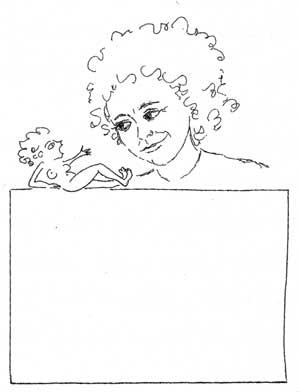
The Shaking Woman or a History of My Nerves
In this unique neurological memoir Siri Hustvedt attempts to solve her own mysterious condition. While speaking at a memorial event for her father in 2006, Siri Hustvedt suffered a violent seizure from the neck down. Despite her flapping arms and shaking legs, she continued to speak clearly and was able to finish her speech. It was as if she had suddenly become two people: a calm orator and a shuddering wreck. Then the seizures happened again and again. The Shaking Woman tracks Hustvedt’s search for a diagnosis, one that takes her inside the thought processes of several scientific disciplines, each one of which offers a distinct perspective on her paroxysms but no ready solution. In the process, she finds herself entangled in fundamental questions: What is the relationship between brain and mind? How do we remember? What is the self? During her investigations, Hustvedt joins a discussion group in which neurologists, psychiatrists, psychoanalysts, and brain scientists trade ideas to develop a new field: neuropsychoanalysis. She volunteers as a writing teacher for psychiatric in-patients at the Payne Whitney clinic in New York City and unearths precedents in medical history that illuminate the origins of and shifts in our theories about the mind-body problem. In The Shaking Woman, Hustvedt synthesizes her experience and research into a compelling mystery: Who is the shaking woman? In the end, the story she tells becomes, in the words of George Makari, author of Revolution in Mind, “a brilliant illumination for us all.”
Reviews
Hilary Mantel, The Guardian (UK)
The Independent (UK)
The Observer (UK)
The Telegraph
The Age (Australia)
The Irish Times
Seed Magazine
Library Journal
Scientific American
Financial Times
Jewish Journal
The Morning News
Book Reporter
Los Angeles Times
“Siri Hustvedt, one of our finest novelists, has long been a brilliant explorer of brain and mind. But recently this investigation has taken a more personal turn: two years after her father’s death, while speaking about him in public, she suddenly found herself seized by convulsions. Was this ‘hysteria,’ a ‘conversion reaction,’ or a ‘coincidental’ attack of epilepsy? The Shaking Woman is the story—provocative but often funny, encyclopedic but down to earth—of her attempt to answer this question. It brings together an extraordinary double story: that of Hustvedt’s own odyssey of discovery, and of that point where brain and mind, neurology and psychiatry, come together in the realm of neuropsychoanalysis. The odyssey has not cured her, nor led to a conclusion—but Hustvedt’s erudite book deepens one’s wonder about the relation of body and mind.” —Oliver Sacks
“That Siri Hustvedt is a splendid writer is well known. The news is that life conspired to have her seek a working mastery of neuroscience. In her wonderful new book, part memoir, part mystery story, she explains this unexpected turn of events and offers the reader a wealth of valuable facts along with personal perspectives on the neuroscientific scene. Not surprisingly, the book is a pleasure to read.” —Antonio Damasio, University of Southern California
“Armed with her great gift for elucidation, the novelist and essayist Siri Hustvedt has omnivorously devoured and digested complex debates from neuroscience, psychiatry, philosophy and psychoanalysis and journeyed into the mind/body problem. In The Shaking Woman, her quest to understand her own mysterious troubles becomes a brilliant illumination for us all.” —George Makari, author of Revolution in Mind
“I was very struck by The Shaking Woman. Not only does it demonstrate nearly complete mastery (by a non-specialist) of the highly specialized field of neuropsychiatry, it also displays greater understanding of the underlying philosophical and historical issues that are at stake in this field than is displayed by most of my colleagues.” —Mark Solms, author of Brain and the Inner World
